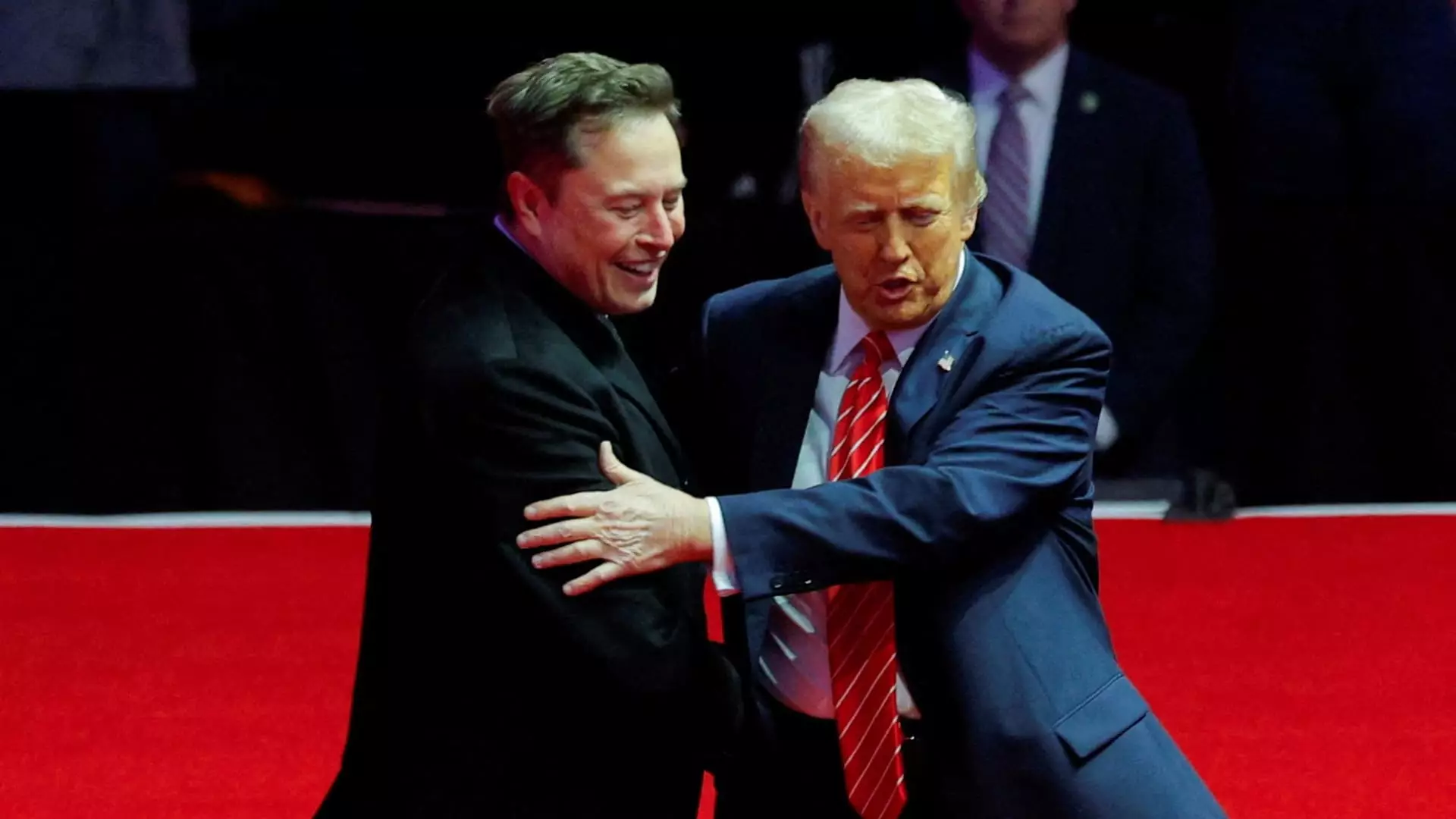The intertwining of business and politics has become increasingly complex in recent years, particularly for high-profile leaders like Elon Musk. As Tesla navigates the murky waters of public perception, especially in light of Musk’s recent political engagements, the relationship between his political activities and the company’s shareholder value has come into sharp focus.
The fourth-quarter earnings report from Tesla emerged during a significant political transition in the United States. With President Trump beginning a second term and Musk playing a conspicuous advisory role, questions concerning the CEO’s priorities became inevitable. Given Musk’s considerable financial contributions—amounting to $270 million—to Trump’s campaign and other Republican ventures, shareholders expressed concern over whether Musk’s commitment to Tesla was being overshadowed by his political aspirations. Indeed, many investors took to forums to voice their apprehensions about the potential distractions caused by Musk’s political engagements, particularly during an election cycle.
These concerns are not merely speculative. Observers noted Musk’s extensive time spent away from Tesla’s operations, engaging instead in political rallies and events, including those at Trump’s Mar-a-Lago estate. This prompts critical questions: Is Musk dividing his attention in a way that could jeopardize Tesla’s innovative edge? As Tesla strives to maintain its position in a fiercely competitive electric vehicle market, any perceived dilution of focus from Musk could have tangible ramifications.
Investor anxiety is compounded by the recent findings from Brand Finance, which reported a 26% decline in Tesla’s brand value. Factors are manifold, including Musk’s controversial and often radical political stances, coupled with the company’s aging vehicle lineup. In a market characterized by rapid technological advancement and evolving consumer expectations, brand perception plays a critical role in sales and market positioning. The hesitance noted among potential customers to recommend or consider purchasing a Tesla vehicle signals a potential crisis in consumer confidence that could, in turn, impact shareholder value.
Moreover, Musk’s distinct branding of himself, especially through gestures that some interpret as politically charged or offensive, has not gone unnoticed. His recent use of a gesture reminiscent of a Nazi salute has drawn severe backlash not merely for its aesthetic implications but also for its historical context. Critics have deemed such actions as damaging to both Musk’s personal brand and Tesla’s corporate image—organizations like the Anti-Defamation League have even expressed their discomfort with Musk’s attempts to trivialize historical atrocities through humor.
The apprehensions expressed by shareholders during earnings calls underscore a growing divide. With inquiries about Musk’s political activities leading to concerns about direct impacts on Tesla’s operations, investors have begun to question whether their confidence in Musk’s leadership is well-placed. Questions about potential sales losses linked to his public engagements and whether Tesla intends to address Musk’s controversial gestures have surfaced prominently.
Yet while these concerns are valid, Tesla and Musk have historically employed a strategy of maintaining a degree of separation between corporate governance and Musk’s personal pursuits. Despite the rising tide of inquiry and criticism, it appears Tesla is under no obligation to address these politicized issues directly within the structured environment of their earnings calls.
That said, the impending pressure on Musk could necessitate a reassessment of how closely his identity—replete with its political affiliations—aligns with Tesla’s values and mission. The potential for a disconnect between Musk’s erratic public image and Tesla’s corporate ethos is an ongoing risk that could alienate both consumers and investors alike.
Tesla stands at a crossroads. As the company continues to innovate and expand, the question remains: can Elon Musk effectively balance his dual identity as a tech visionary and a political influencer? The development of Tesla’s future will likely depend on this balance. Should Musk choose to steer his focus back more towards Tesla’s core business objectives and less towards political entanglements, it could help restore investor confidence and reinforce Tesla’s brand image. However, failing to do so may result in more than just fleeting controversy; it could usher in a fundamental reevaluation of how stakeholders view the relationship between innovation and active political involvement in the executive sphere.

